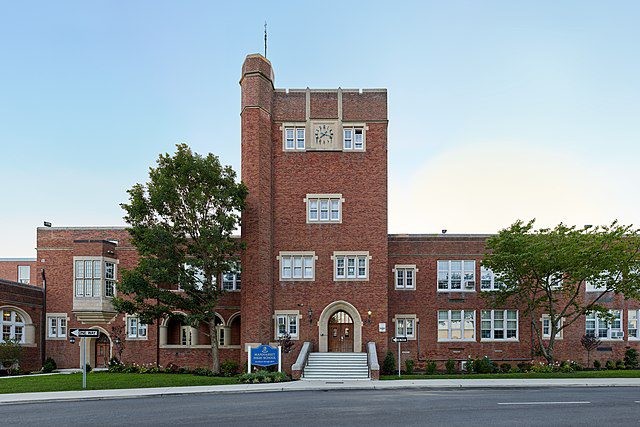Legislator Lafazan proposes bipartisan meetings and action

Barely two weeks into his term representing District 18 in the Nassau County Legislature, Joshua Lafazan (D-Syosset) is staying true to his campaign promise to deal with the county’s opioid crisis head-on. At the inaugural press conference he recently held in front of Mineola’s Theodore Roosevelt Legislative & Executive Building, Lafazan was joined by colleagues and officials to announce that bipartisan hearings would be held to address heroin and opioid abuse in Nassau County.
“I am proud to announce that through my conversations with Republican Legislator Steve Rhoads, Minority Leader Kevan Abrahams and my colleagues assembled here today, there is finally bipartisan support for conducting hearings throughout Nassau County on this epidemic. I believe that Nassau County needs a single, 24-hour open access center where individuals can show up to receive immediate screening, intervention and referral to treatment and needs to follow Suffolk’s lead in establishing a 24-hour hotline dedicated specifically to substance abuse. Let’s promote this hotline to all corners of our county and make sure this hotline serves as a lifeline for those who are struggling.”
Among those showing up to support Lafazan’s message were Legislators Debra Mule, Ellen Birnbaum and Delia DeRiggi-Whitton along with Nassau County Police Commissioner Patrick Ryder, Dr. Jeffrey Reynolds, CEO of Family & Children’s Association, and Steve Chassman, executive director of the Long Island Council on Alcoholism and Drug Dependence (LICADD), and Teri Kroll, board member of Families in Support of Treatment (F.I.S.T.). Given the fact that from 2012-15, Nassau County lost a total of at least 671 people to heroin or prescription pill overdose (with eight people from Garden City falling into this category between 2015 and 2017) experts in this field like Chassman feel this kind of action from a municipal level is long overdue.
“The year 2018 has begun and I feel the change in leadership. Over the past many years, there have been a lot of press conferences and a lot of planning. I believe Legislator Lafazan, Commissioner Ryder and the other legislators—with new leadership in Nassau County, we need to turn the tide. This is no longer a time for talk but a time for action. The recipe for changing health care epidemics and turning corners remains the same—for those afflicted with an illness, easy access and treatment-on-demand are so important,” he said. “This is a devastating health crisis—the worst we’ve seen. The numbers are staggering. Whether you know it or not, we are standing in the epicenter of the crisis in Nassau and Suffolk. We have among the highest incidence of overdose and substance abuse in the entire state. That’s a top list that we are not used to being on in our fair island and this is a time for action. We’re firm believers that in times of great crisis comes great opportunity.”
With a chance to make this kind of bipartisan push, the freshman legislator is offering a number of proposals on top of a 24-hour open access center and addiction crisis hotline. Lafazan has also floated the idea of training every Nassau County employee in NARCAN administration, opening a Nassau Recovery Center to mirror Suffolk County’s THRIVE (Transformation, Healing, Recovery, Inspiration, Validation and Empowerment) Center and creating sober dormitories at all colleges within Nassau County.
“I believe we should explore establishing substance-free dorming options at all colleges in Nassau County. This acts as prevention for students, both for those seeking to avoid the normalcy that has become binge drinking and opioid abuse on campuses nationwide and for kids in recovery, so they are not thrown back into the very same ecosystems which fermented their original addiction,” Lafazan said. “Currently in New York, SUNY Plattsburgh, SUNY Genesco, SUNY Binghampton (chemical-free), SUNY Potsdam, Ithaca College, SUNY Purchase, SUNY Fredonia and Stony Brook offer some form of substance-free dorming. We should add colleges in Nassau County to this list.”
The attention that public officials are finally turning toward the opioid crisis is definitely something long overdue according to Kroll, who lost her son Tim to heroin addiction in August 2009 and is currently on the board of Families in Support of Treatment (F.I.S.T.).
“At the time, you couldn’t find help, you didn’t know where to turn and nobody talked about addiction as a disease in public,” she said. “Eight years later, there’s been a big change.”





























